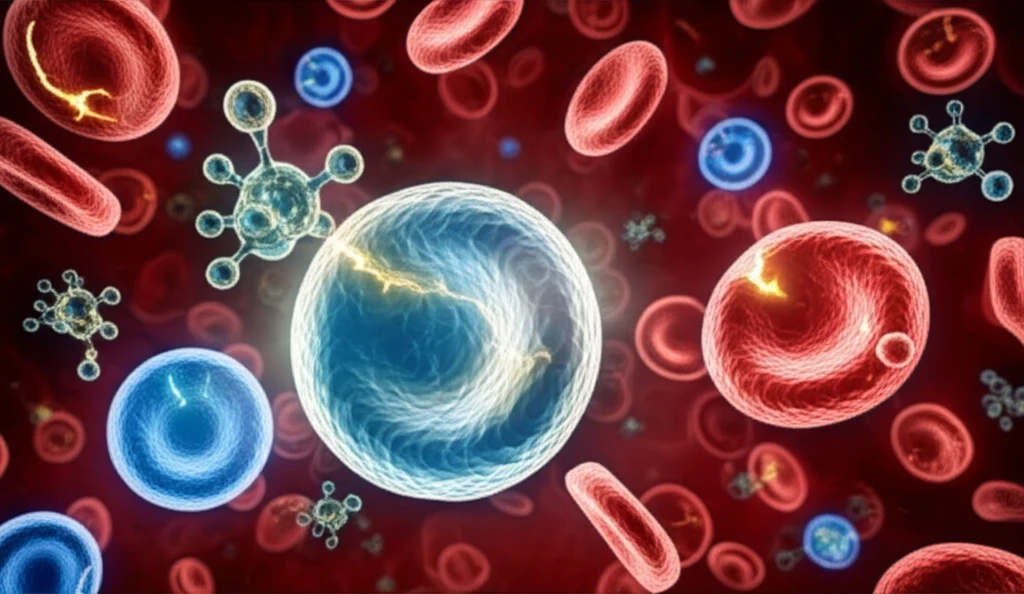
Unveiling the Silent Threat: How Benzene Exposure Impacts Your Blood and What You Can Do
"New Research Reveals the Hidden Dangers of Benzene Exposure and Its Link to Hematotoxicity, Offering Insights and Actions for Protecting Your Health."
Benzene, a chemical found in gasoline, cigarette smoke, and industrial emissions, poses a significant yet often overlooked threat to public health. This article delves into the latest research, uncovering how benzene exposure can lead to serious blood disorders, specifically hematotoxicity. We'll explore the science, the risks, and, most importantly, what you can do to protect yourself and your loved ones.
The world is filled with invisible dangers, and benzene is one of them. It's a colorless or light-yellow liquid with a sweet odor, and it's widely used in the chemical and manufacturing industries. While its presence is ubiquitous, its impact on human health, particularly on blood cells, is a serious concern. This article aims to shed light on these hidden dangers.
Understanding the risks is the first step towards prevention. We'll break down complex scientific findings into easy-to-understand information, empowering you with knowledge and actionable steps to mitigate the dangers of benzene exposure. This is not just a scientific discussion; it's a guide to protecting your health.
The Science of Benzene and Its Impact on Blood Health

The core of the issue lies in benzene's ability to disrupt the normal function of the bone marrow, where blood cells are produced. Exposure, whether through inhalation, ingestion, or skin contact, can lead to a decrease in the production of red blood cells, white blood cells, and platelets. This can result in anemia, a weakened immune system, and increased risk of bleeding.
- Reduced White Blood Cell Count (Leukopenia): A common consequence of benzene exposure, making individuals more susceptible to infections.
- Anemia: A decrease in red blood cells, leading to fatigue and weakness.
- Thrombocytopenia: A reduction in platelets, increasing the risk of bleeding.
- Disrupted Fatty Acid Oxidation (FAO): A key metabolic pathway, its disruption can increase the impact of benzene.
Taking Action: Protecting Yourself and Others
Knowledge is power, and now you are equipped with essential insights into the dangers of benzene exposure and its effects on your blood. To protect yourself and others, prioritize awareness, advocate for safety, and support further research into this silent threat. By taking proactive steps, you can contribute to a healthier, safer future for all.
